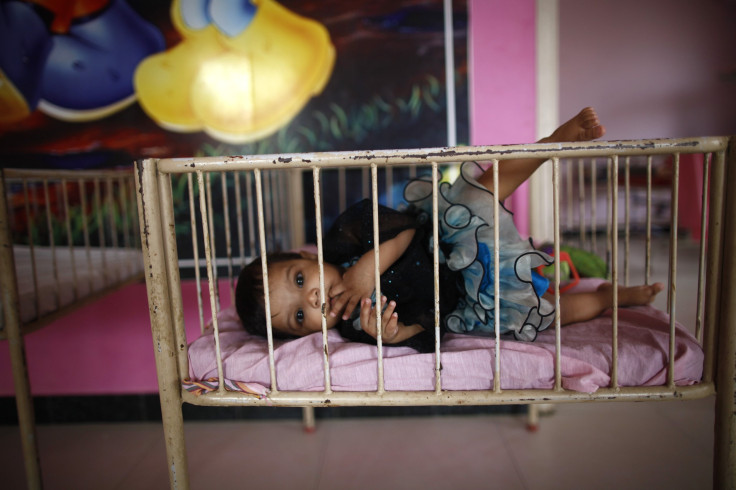Family Care May Not Be Best For Orphans Who Often Fare Better In Institutions

It may surprise you to learn that UNICEF defines an orphan as a child who has lost either one or both parents. By this definition, more than 132 million children are classified as orphans, with nearly 10 percent (or 13 million) fulfilling the more common definition of having lost both parents. Sadly, in many areas of the world, the loss of one parent has as great a (negative) impact on a child's life as losing both parents. However, hope remains.
A new study demonstrates that orphans living in institutions are as healthy and, in some ways, healthier than those in family-based care. In fact, the removal of a child from an institution or group home could worsen outcomes in five low- and middle-income countries. "We believe returning children from institutions to biological families may not result in the best outcomes, at least without significant intervention for the biological family, including supervision and follow-up," said Dr. Kathryn Whetten, professor of public policy at Duke University and lead author of the study.
South and east Asia have the largest number of orphans (72 million); estimates for Africa indicate that 12 percent of all children on the continent will be orphaned by 2010. High mortality among adults from conditions such as malaria, tuberculosis, pregnancy complications, HIV/AIDS, and natural disasters are responsible for the large and increasing number of orphans. Evidence provided by UNICEF shows that the vast majority of orphans worldwide live with a family member, while 95 percent are over the age of 5. In the United States, 397,122 children are living in the foster care system, with over a quarter eligible for adoption. Orphans can be found worldwide.
Duke Global Health Institute’s is following more than 1,300 orphaned and separated children living in institutions and another 1,400 children in family-based care through its Positive Outcomes for Orphans (POFO) study. A sub-study includes three years of data from caregivers and children ages 6 through 15 across sites in Cambodia, Ethiopia, India, Kenya, and Tanzania. The team of researchers examined many aspects of child well-being, including physical health, emotional difficulties, growth, learning ability, and memory.
“Our findings put less significance on the residential setting as a means to account for either positive or negative child well-being over time,” Whetten said. “This underscores the need to continue working to tease out the blend of caregiving characteristics that lead to the best child outcomes within each setting.” Ultimately, this new research upends the opinions commonly held by children's rights organizations, which assert that institution-based caregiving results in universal negative effects on the development and well-being of children. Given the study's unexpected outcome, Whetten suggests an altered “focus on improving the quality of caregiving in family settings and group homes, the well-being of caregivers and improving communities.”
Source: Whetten K, et al. Three-year change in the wellbeing of orphaned and separated children in institutional and family-based care settings in five low- and middle-income countries. PLOS ONE. 2014.



























